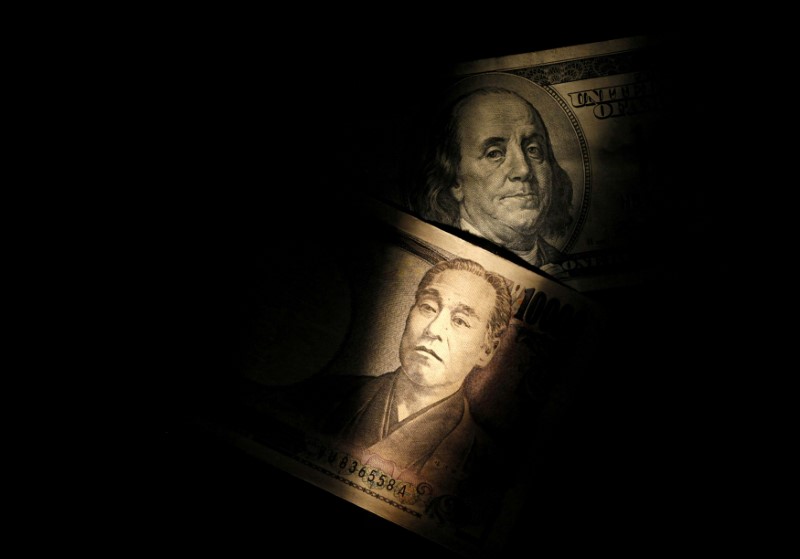By Ritvik Carvalho
LONDON (Reuters) - The dollar edged up against the yen in European trading on Wednesday but fell short of broader gains after North Korea test-fired a ballistic missile ahead of a key meeting between U.S. and Chinese leaders.
Pyongyang's missile launch came a day before talks on economic and security issues between U.S. President Donald Trump and Chinese counterpart Xi Jinping, pressuring the dollar in Asian trade as investors sought refuge in the perceived safety of the Japanese currency.
The greenback turned positive in morning London trade, rising 0.2 percent to 110.99 yen
The dollar index, which tracks the U.S. currency against a trade-weighted basket of six peers, rose slightly to 100.54 (DXY), but anxiety about the upcoming U.S.-China meeting on top of a risk-off mood this week kept it from further gains.
Trump's consistently harsh rhetoric on China has raised concerns about Thursday's summit among investors, as has speculation that the U.S. president will face challenges implementing his promised growth-boosting policies after his administration failed to pass healthcare reform.
"Part of the pressure we've seen on the dollar this morning was the firing of the missile by North Korea, which has been weighing on risk sentiment," said Alexandra Russell-Oliver, currency analyst at Caxton FX in London.
"It's a combination of those factors and the ongoing questions about the Trump trade and how effective Trump's policies will be and how easily he'll be able to pass spending and tax measures."
Investors were also on the watch for U.S. economic data and minutes from the U.S. Federal Reserve's March policy meeting for clues about the pace of future interest-rate rises.
Employment data from private data firm ADP, a services purchasing manager's index from the Institute for Supply Management (ISM), and the Fed's minutes were due later on Wednesday.
The euro was off slightly, down 0.1 percent to $1.0670
Investors also kept a close eye on the Czech crown (EURCZK=) amid rising speculation that the Czech central bank could drop the currency's cap against the euro.
The cost of hedging against volatility in the crown against the euro over the next 24 hours jumped to its highest in over nine months.
"I think they (Czech National Bank) are telegraphing it (dropping the cap), so they must have an intention of removing it," said Stephen Gallo, currency strategist with BMO Capital Markets in London.
"I suspect that they're watching very closely the events taking place in France though, ahead of the presidential elections (on April 23 and May 7). I doubt they'll remove it before we get a result there."
For Reuters Live Markets blog on European and UK stock markets see reuters://realtime/verb=Open/url=http://emea1.apps.cp.extranet.thomsonreuters.biz/cms/?pageId=livemarkets
